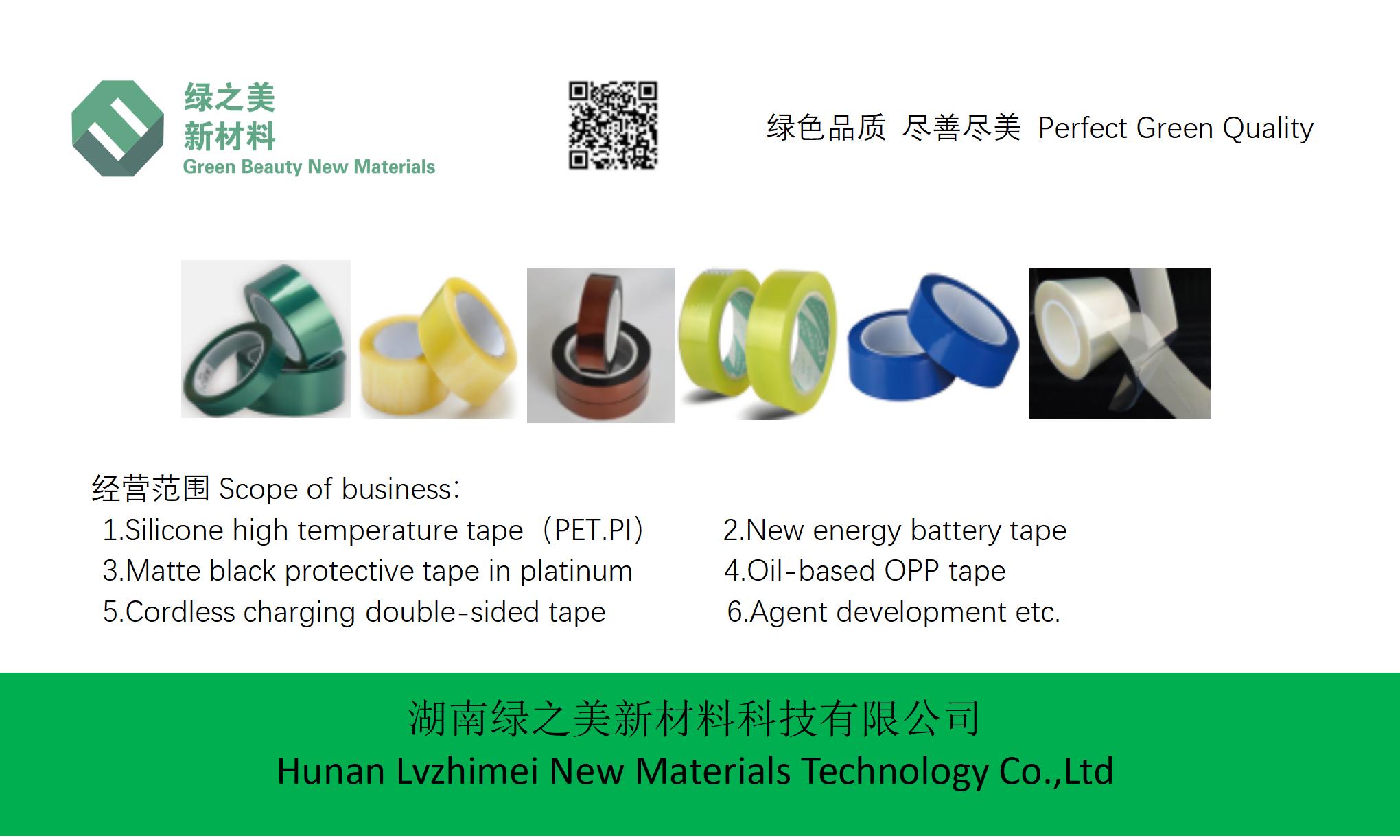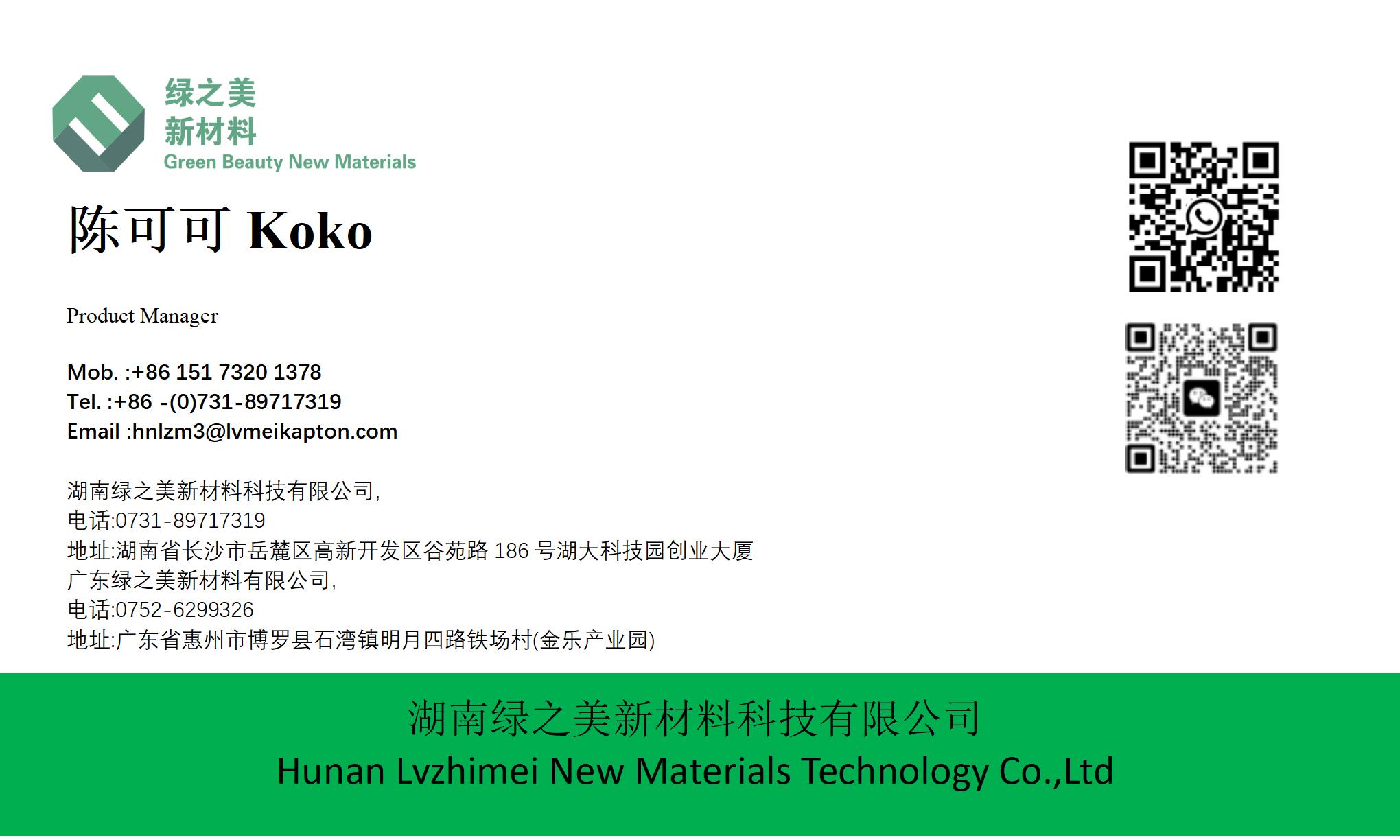hnlzm@lvmeikapton.com
+86 13787123465


Hunan Lvzhimei New Material Technology Co., Ltd.


NameDescriptionContent
Which Industries Rely on Gold Finger Electronics Polyimide Tape? |https://www.lvmeikapton.com/
Source:
|
Author:Koko Chan
|
Published time: 2025-05-22
|
318 Views
|
Share:
In the rapidly advancing landscape of modern technology, materials that withstand extreme conditions are essential. Gold Finger Electronics Polyimide Tape, often referred to as Kapton tape or PI tape, has emerged as a cornerstone in various industries. This high-performance adhesive tape, made from polyimide (PI) film coated with silicone pressure-sensitive adhesive, offers unparalleled thermal resistance, electrical insulation, and chemical stability. This article delves into how PI material high temperature resistant 300 tape and Lvmeikapton insulating electrical tape support critical applications in electronics, solar energy, electric vehicles, and aerospace, driving industrial innovation and reliability.
Which Industries Rely on Gold Finger Electronics Polyimide Tape?
IntroductionIn the rapidly advancing landscape of modern technology, materials that withstand extreme conditions are essential. Gold Finger Electronics Polyimide Tape, often referred to as Kapton tape or PI tape, has emerged as a cornerstone in various industries. This high-performance adhesive tape, made from polyimide (PI) film coated with silicone pressure-sensitive adhesive, offers unparalleled thermal resistance, electrical insulation, and chemical stability. This article delves into how PI material high temperature resistant 300 tape and Lvmeikapton insulating electrical tape support critical applications in electronics, solar energy, electric vehicles, and aerospace, driving industrial innovation and reliability.
2. Electronics Industry: The Core应用领域The electronics industry heavily relies on Gold Finger Electronics Polyimide Tape for its versatility and durability.
2.1 Printed Circuit Board (PCB) ManufacturingDuring the Surface-Mount Technology (SMT) process, PCBs undergo wave soldering, exposing components to temperatures exceeding 260°C. PI tape’s thermal resistance (up to 300°C) makes it ideal for protecting sensitive areas like "gold fingers" (connectors) from molten solder. A case study at a leading semiconductor manufacturer revealed that using PI tape reduced component failure rates by 35% during soldering, saving millions in rework costs.
2.2 High-Temperature Soldering ProtectionIn transformer and motor winding insulation, PI tape’s H-class electrical insulation properties prevent short circuits. For example, a global motor manufacturer adopted PI tape for stator coil wrapping, enhancing product lifespan by 50% in high-temperature environments (up to 220°C).
2.3 Motor and Transformer InsulationPI tape’s flexibility and adhesive strength ensure secure winding包扎 without cracking under thermal cycling. A study by the IEEE showed that PI tape-coated transformers demonstrated 98% efficiency retention after 5,000 thermal cycles, compared to 75% for traditional insulation materials.
3. Solar Energy Sector: Enabling Reliable PV ModulesThe solar industry faces challenges in outdoor durability and long-term performance. PI tape addresses these concerns:
3.1 Encapsulation and Junction Box ProtectionSolar panels are exposed to UV radiation, moisture, and temperature fluctuations. Lvmeikapton insulating tape is used to seal junction boxes and encapsulate cells, preventing degradation. A field test by a PV module supplier demonstrated that modules protected with PI tape maintained 95% power output after 10 years, compared to 85% for non-PI-treated counterparts.
3.2 Thermal Management in Solar CellsPI tape’s high thermal conductivity aids in dissipating heat generated during operation. When applied to backsheet layers, it reduces cell temperatures by 8-12°C, boosting energy conversion efficiency by 2-3%.
4. Electric Vehicle (EV) Battery ManufacturingEV batteries require stringent insulation to ensure safety and performance.
4.1 Battery Cell Isolation and Thermal StabilityPI tape’s chemical resistance and high dielectric strength isolate individual cells in battery packs. Tesla’s battery assembly line integrates PI tape for electrode wrapping, enabling packs to withstand voltages up to 800V while maintaining thermal stability in -40°C to 85°C conditions.
4.2 Charging System InsulationDC fast chargers generate intense heat during operation. By applying PI tape to cable terminations, insulation integrity is maintained even under 150°C continuous exposure, reducing the risk of arcing.
5. Aerospace and Defense: Extreme Environment ReliabilityAerospace electronics must function in vacuum, radiation, and thermal extremes.
5.1 Avionics System ProtectionPI tape’s radiation resistance is crucial for satellite and aircraft electronics. NASA’s Mars rover project used PI tape to protect control circuitry from cosmic radiation, ensuring mission-critical systems’ longevity.
5.2 Thermal Management in Aerospace ElectronicsIn avionics systems operating at altitudes with -60°C to +120°C temperature ranges, PI tape’s dimensional stability prevents insulation cracking. A European aerospace company reported a 40% reduction in avionic unit failures after adopting PI tape-based insulation.
6. Advantages of PI Material High Temperature Resistant 300 TapeThe unique properties of PI tape drive its adoption:
6.1 Key Features
●
Temperature Range: -70°C to +300°C continuous operation.
●
Electrical Insulation: H-class (UL 94V-0).
●
Chemical Resistance: Resistant to acids, solvents, and fuels.
●
Low Outgassing: Ideal for vacuum environments.
●
Environmental Compliance: RoHS and REACH compliant.
6.2 Comparison with Traditional Materials
Material | Temperature Limit | Flexibility | Chemical Resistance | Long-term Stability |
PI Tape | 300°C | High | Excellent | >10 years |
PVC Tape | 105°C | Medium | Moderate | 3-5 years |
PET Tape | 150°C | Low | Poor | 1-2 years |
7. Lvmeikapton Insulating Electrical Tape: A Specialized SolutionLvmeikapton tape, a variant enhanced with anti-static properties, is tailored for sensitive electronics. Its low surface resistivity (10^8-10^11 Ω/sq) prevents electrostatic discharge (ESD) damage in semiconductor fabs and data storage systems. For example, a hard disk drive manufacturer reduced ESD-related defects by 90% after implementing Lvmeikapton tape in assembly lines.
8. Future Trends and Industrial GrowthAs industries transition to higher-power electronics (5G infrastructure, AI systems), PI tape demand is projected to grow at a CAGR of 7.5% by 2030 (Global Market Insights). Advancements in nano-coatings may further enhance PI tape’s thermal conductivity, paving the way for applications in quantum computing and fusion energy systems.
ConclusionGold Finger Electronics Polyimide Tape’s exceptional thermal, electrical, and chemical properties underpin the reliability of critical technologies across electronics, solar energy, EVs, and aerospace. By enabling components to withstand extreme environments, PI tape not only ensures product longevity but also accelerates the adoption of sustainable and high-performance technologies. As industries evolve, this versatile material will remain at the forefront, driving innovation and growth.


Hunan Lvzhimei New Material Technology Co., Ltd.
Quick Links
Product Categories
© 2024 Hunan Lvzhimei New Material Technology Co., Ltd.All Rights Reserved. Designed by Erge
0731 - 89717319
hnlzm@lvmeikapton.com
+86 13787123465
Room 502, Chuangye Building, No186, Guyuan Road, High-Tech District, Changsha, Hunan, China
CONTACT









